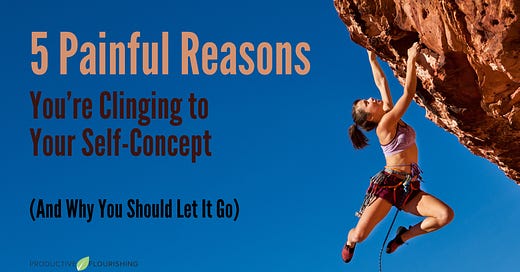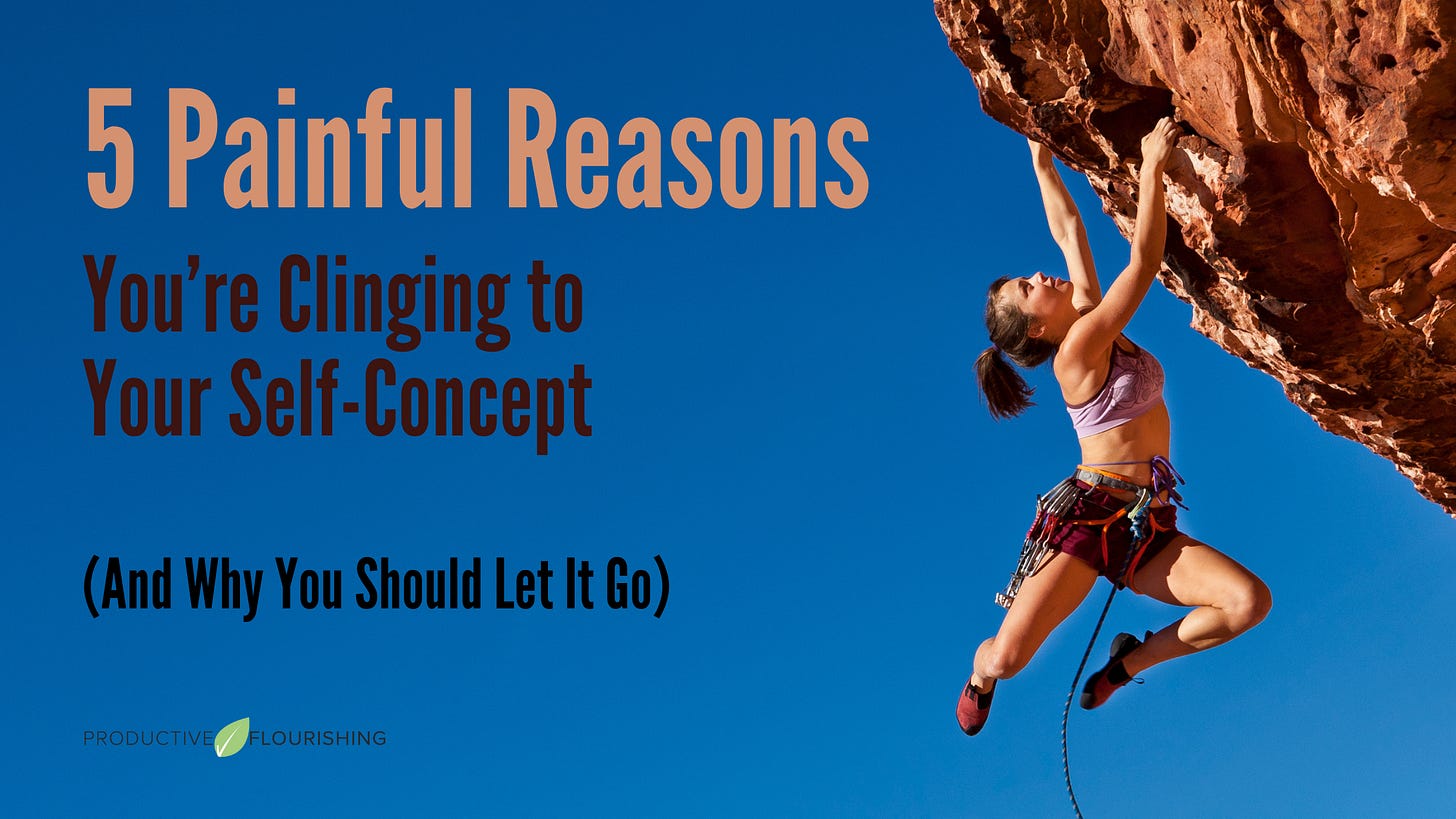“Change is the essence of life; be willing to surrender what you are for what you could become.” —Reinhold Niebuhr
A continual struggle we all face is that where we started is often a very poor indication of where we could go, but we often set where we could go based upon where we started and rarely update what's possible for us. We actually can't help this in some ways — we can only see what’s in our known world.
But every day we create new opportunity chains for ourselves and get closer to the edge of that known world. The more we accomplish, the more we butt up against that edge, until we finally reach the borderline where we have to make the choice to stay within the edges of what we know or to step into the unknown.
Confronting the History and Consequences of Old Self-Concepts
What’s often more scary than the unknown unknowns out there is how traversing the unknown requires us to reevaluate the story we have about ourselves. If you know yourself as the shy farm girl from Vermont, it’s hard to step onto the stage of intellectuals and changemakers, not because you don’t have the capabilities, but because it violates the image you have of yourself. If you see yourself as the newest generation of a line of entrepreneurs, it’s hard to become a police officer, even if you know that’s what you’'re most meant to do.
Reflections on letting go of what we are often focus so much on early stages of life — I wouldn’t be surprised if you were thinking of someone in their late teens and twenties while you were reading the paragraph above. And yet, the message is even more important for us to consider as we age, precisely because it becomes easier for us to assume the shrinking days before us are also shrinking what we can yet do on this world. Sure, time may sap our energy and physical capabilities, but it also gives us riches more valuable: wisdom, community, patience, wealth, accomplishment, and self-awareness. The difference between a true elder and an old person is that the former understands they’re at the peak of their service, and the latter are stuck in the glory and regrets of yesteryear.
Old self-images are often canoes we need to put down. The more we believe our self-image was instrumental for getting us to where we are, the more essential that we check in about whether that self-image is still relevant to the journey we’re on. One sign that it may be time to let it go is if you’re aware that you're maintaining the image of who you think you should be. An even better sign is if maintaining it is wearing you out.
Every bit of energy you use maintaining who you should be takes away from the energy it’ll take for you to become what you could be.
The deeper and more important that self-image is to you, the harder and more painful it will be to let it go. There are many reasons it's more painful, but here are a few:
You won’t be able to see how what you’re doing isn’t working. Parents of young adults who have “failed to launch” only realize years later how their self-image played into their child’s patterns.
It’ll often require you to reset boundaries and have uncomfortable conversations with people you love and care about rather than just wearing the mask that everyone feels comfortable with.
You’ll have to endure the necessary failures and missteps that come with new ways of living, being, and doing.
You might need to make space to grieve the passing of your former self, and grieving isn’t linear or a delightful experience for lots of us. Whether that former self was someone you loved or someone who needed love she never got, it's a loss or at least a significant transition.
The journey to who you can really become can be incredibly lonely until you find others on their soul journey.
Letting Go Is a Process
The reasons above address the “if we all know this, why don't we do it?” aspect of letting old self-images go. It can be a hard, slow, and painful process, so it makes sense that people stay stuck. As heavy as the canoe might be, the weight on our shoulders feels easier to endure than the weight on our souls that may come from actually setting it down.
I’ll leave you with a few questions to consider:
What self-concepts are you holding onto and maintaining?
Are they serving you?
How might your life be better, richer, or more wonder-full if you let them go?
What’s it costing you to maintain them?
What do you need to let them go?
If you’re interested in more reflections on these ideas, check out Richard Rohr's Falling Upward. I recently read it and enjoyed what it added to my own thoughts for this post.





